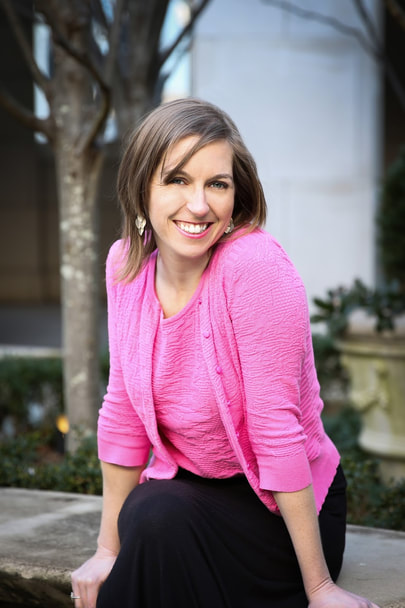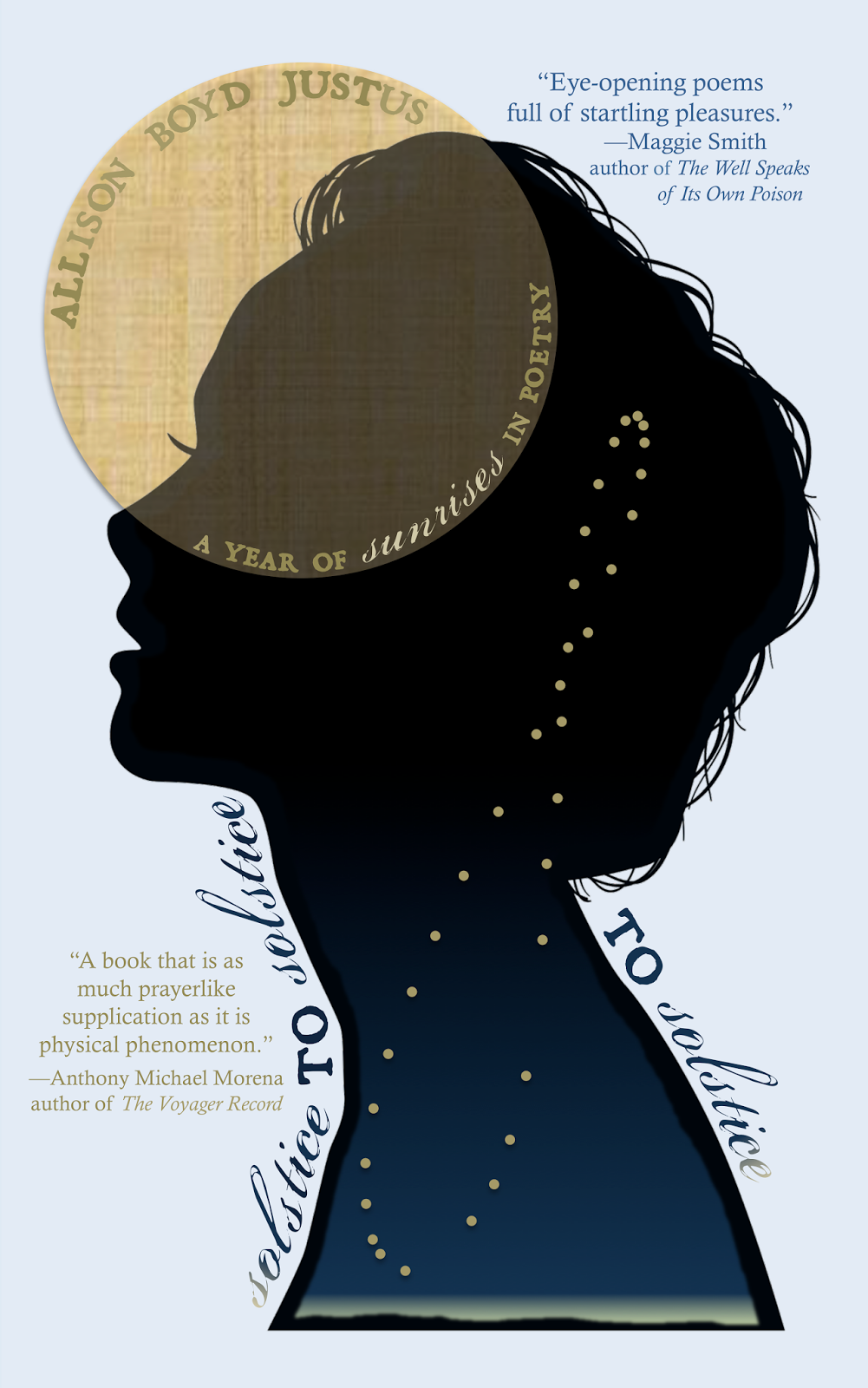|
I, being the crazy girl I am, agreed to do a reading challenge with some friends this year. I might post more on it another time, but there's not enough room here for the whole explanation. Let's just leave it at this: I am reading a different "kind" of book each month for this challenge. Because April was poetry appreciation month, a book of poetry was our type of book to read. I don't think I have read much poetry since I graduated college because, honestly, it's not one of my favorite things to just sit and peruse. I'd much rather get caught up in a story. And when the poetry doesn't even rhyme, it's even harder for me to enjoy. All that being said, I chose to read a book of poetry by a girl who graduated from Freed-Hardeman University a few years after I did, and who I had gotten to know a bit through my sister. And, even though it didn't rhyme, I did enjoy it quite a bit. Allison has a way of describing things, or making you look at something like you've never thought to look before. And it's fascinating. Her book is called Solstice to Solstice to Solstice, and is 366 poems all written at/about sunrise every morning for a year. I contacted her to see if she'd like to come visit with my readers and let them get to know her a little, too, and she was delighted. So, without further ado, here is my chat with Allison Boyd Justus. When did you first know you wanted to be a writer or when did you start writing? I started "writing books" around age 4. My mother let me draw on the back of what must have been old accounting paperwork and showed me how to staple the pages together like a book. I wrote in loopy "cursive" because I thought cursive was beautiful, but I didn't actually try to spell out any words, because I was already a perfectionist and didn't want to make any spelling mistakes. Several of my teachers, including Mary Ann Blankenship, Cheryl Hitchcock, Charlotte Boyd, Bonnie Collier, Medora Willmore, Melba Clark, and Margaret Payne, encouraged me over the years. Before I was out of elementary school, I could say that I wanted to be a writer without meeting ridicule or skepticism from the adults in my life. I now recognize that I was tremendously blessed in this regard. Writing seemed to be just one of many possible vocations (and avocations), though, until I was in graduate school. I started writing poetry without quite realizing what I was doing, but I knew that I was somehow striking the vein of something essential--essential to my own life, if no one else's--through these strange word-sculptures. What is it about poetry that draws you to it? I love words and meaning and music. Music, the "universal language," is surely a more primal art form than poetry; poetry draws its power from both the music of language and the meanings of words. I suppose I'm drawn to poetry because it engages my mind on so many levels--visual, musical, linguistic, philosophical. I have no idea who said that poetry is "a thought, caught in the act of dawning," but isn't it beautiful? It is beautiful! Almost as beautiful as a sunrise. So, how hard was it to get up to see the sunrise every morning? Do you usually rise early anyway? It was hard, but it was doable. I wasn't yet teaching full-time. I like getting up early if I've had enough sleep. Reading through your book, I quick discovered you have an amazing vocabulary. I will admit I didn't know the definition of every word you used in your book. How did you learn so many words? Any tips for others who might want to increase their word knowledge, as well? That's an interesting question. I love words--I guess that's how I learn them. I pay attention to them, look them up, mull them over, try them out. I recommend reading books, including the dictionary. Dictionary.com is fun because you can read the etymological history of words, and entries are often linked by morphemes. I love reading, and know it's increased my vocabulary through the years, but never thought of reading the dictionary. Do you have anything else in the works? More poetry or something else? I am very interested in the ancient Hebrew practice of midrash and also in the poetry of faith, such as the Hebrew psalms and prophecies. I am moving in that direction with my work, which is not to say I am limiting myself to writing that is specifically religious in any way--but both creativity and reverence are essential. I have several poems that are awaiting my attention right now, and I think they understand that they will have to wait patiently until I finish writing this month's IEPs. Ah, yes. End of the school year crunch time! As a teacher, do you get to teach your students about writing? Do you have any tips for others who might want to write? Yes, I am a gifted education teacher until the end of this school year, and I will begin teaching undergraduate classes this fall. Teaching writing is one of the most exciting aspects of the multi-faceted work I do. It is also one of the most challenging. I am grateful to Priscilla Weber, my mentor and literacy coach during my first year of public school teaching, for encouraging me to think critically about writing pedagogy. My experience with the Middle Tennessee Writing Project has likewise been invaluable to my growth as a writer and a writing teacher. It's hard to reduce the writing life to tips. So much of it comes down to practice, persistence, and discipline. There's a passage in Annie Dillard's book The Writing Lifeabout "the page, which you cover slowly with the crabbed thread of your gut" teaching one how to write. Yes! The page itself teaches. So does reading--and having readers and listeners who are literate and intelligent and kind enough to ask questions and criticize in a way that "moves the writing forward," as my MTWP friends would say. I know I wouldn't be where I am without great friends to help critique. Okay. One more question: can you leave us with one fun fact about you? One fun fact! Okay--I was born on December 22, which is usually the day after the winter solstice, but sometimes the winter solstice falls on that day. My mother was born on March 20, which is usually the vernal equinox. That's a two-part fun fact. Is that okay? Perfect! Very neat. Thanks so much for visiting, Allison! It was great to get to know you a little better. See below to learn more about her and her book. Allison Boyd Justus grew up in the shadow of Ben Lomand Mountain in Warren County, Tennessee. She studied music, literature, pedagogy, and theology, and has worked as a waitress, library assistant, and special education teacher. She once spent a year watching sunrises.
Follow her here to keep up with her thoughts and writings. Her book is available here or at Amazon or BN. Today, I'm being spotlighted over here. Go check out this interview, for sure. She had some really fun questions. :-)
|
This is a place for me to tell you about what I'm writing, talk about the process or where some of my ideas came from, or even have other authors come in and talk about their books.
Categories
All
Authors I Love to Read (in no particular order)
Archives
July 2024
|


 RSS Feed
RSS Feed
